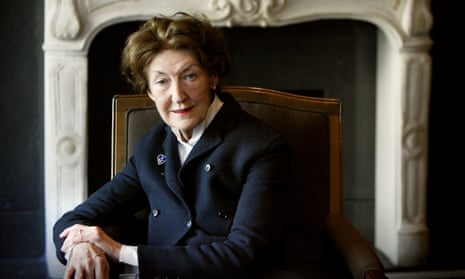Shirley Hazzard produced only four novels in a writing life that spanned nearly five decades, and was principally known – at least at the beginning of her career – as a writer of short fiction. This new edition of her collected stories, edited by her biographer Brigitta Olubas, brings together Hazzard’s two previous volumes, Cliffs of Fall and Other Stories (1963) and People in Glass Houses (1967), with a selection of previously uncollected and unpublished stories. These include Woollahra Road, a child’s-eye view of depression-era Australia and the first story she ever submitted for publication, marking the beginning of her long relationship with the New Yorker, where the majority of these stories first appeared.
Hazzard’s recurring themes here – enlarged upon in her novels – are love, self-knowledge and disappointment. Her characters measure their failures against a bigger picture, of global events or their own ideals, and often dislike the result. “But no man, he assured himself irritably, could be entirely satisfied with what had happened to him. There must always be the things one had chosen not to do.” The subject here is Clem, a middle-aged married man who appears in a pair of stories from Cliffs of Fall. The first, A Place in the Country, deals with the end of his brief affair with his wife’s young cousin, Nettie, a rupture that causes considerably more grief to the girl. The Picnic sees the characters reunited eight years later. Clem tries to persuade himself that he made the right choice in not leaving his wife, May; Nettie acknowledges the ways in which their affair has shaped her life, despite his indifference: “She sympathised with his attitude. It was tempting to confine oneself to what one could cope with. And one couldn’t cope with love. (In her experience, at any rate, it had always got out of hand.)” But the story ends, with absolute precision, on May, whose share of the narrative is a mere four lines as she watches the former lovers: “On either side, her palms were pressed hard against the stone.”
As Zoë Heller observes in her foreword, there is a hint of George Eliot’s Dorothea Brooke in Hazzard’s repeating pattern of youthful female ardour dashed against jaded male indifference. Her heroines are romantics – though with Hazzard, even that word is shot through with knowingness: “‘Of course, I’m an incurable romantic,’ Vernon was saying. He made it sound like a disease.”
The moments of drama in these stories happen largely offstage; Hazzard is concerned not with the discovery of an infidelity, for instance, but with the conversation – or lack of it - that happens after the discovery, with the way marriages or affairs founder on a lack of mutual understanding, or drift on unresolved through inertia. She is often wry, but never cynical. As one character observes about an unhappy young couple staying in their villa: “There was something admirable about being close enough to love to be able to quarrel over it. The thought of Harriet, now, lying on her bed – crying, possibly – because of love, filled him with wonder and envy.”
Often by portraying its absence, these stories assert the importance of true connection, in the elegant, scalpel-sharp prose for which Hazzard has been admired since her earliest work. Devoted fans may feel a little cheated – only two of the stories here are truly “new”, discovered in typescript among her papers after her death – but the collection offers a fine introduction to a remarkable writer who deserves to go on finding new readers.

Comments (…)
Sign in or create your Guardian account to join the discussion